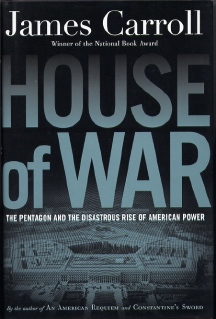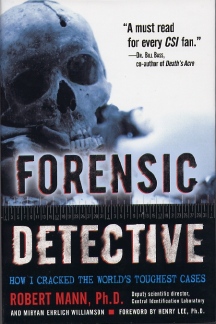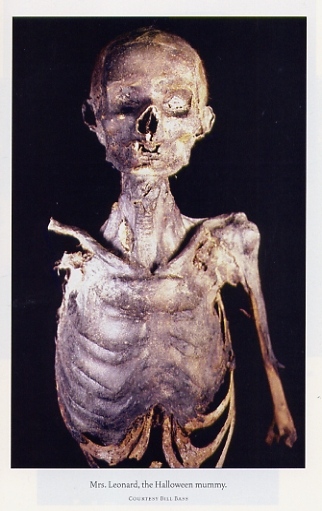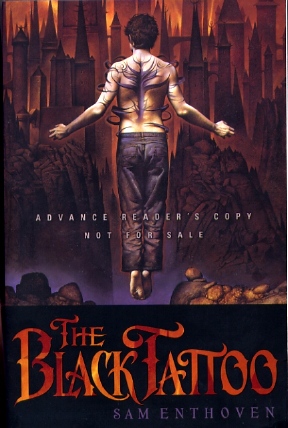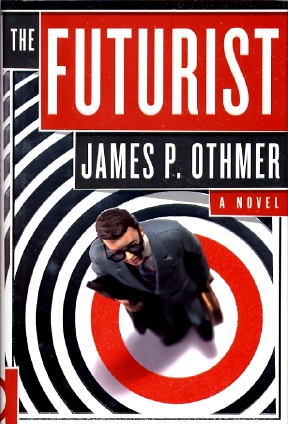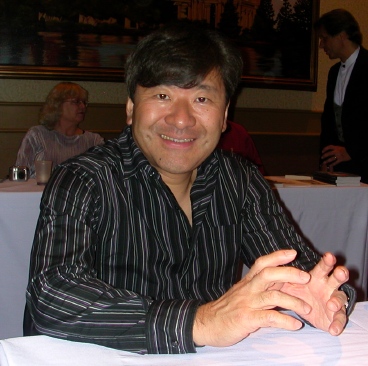|
|
|
This Just In...News from the Agony Column
|
06-02-06: James Carroll Lives in a 'House of War' |
|||
'The
Pentagon and the Disastrous Rise of American Power'
So yes, sometimes it is the big things that take us back. For me, a not-so-simple phrase does the trick. "The military-industrial complex." Now there's a journey down old memory lane for you! The object of satire in Mad Magazine and even Doctor Strangelove, and perhaps the origin point for the action described by a verb that has become increasingly popular of late. Bloviating. So yes, it might be lamb curry, or it might be the mere mention of the military-industrial complex, Eisenhower's famous phrase that sweeps me back to my youth. I can remember being home sick when the air raid sirens went off once. I walked outside and stood in the bright sun at a time when I'd usually be in school, staring at the empty suburban streets. Like most kids, I was sort of worried about this whole end-of-the-world scenario. To me WWIII, worldwide atomic warfare, was a when not an if. The intricate, intimate background to all those years, stretching from then to now is the subject of James Carroll's massive 'House of War: The Pentagon and the Disastrous Rise of American Power' (Houghton Mifflin ; May 16, 2006 ; $30). Carroll, a novelist and the winner of the National Book Award for his memoir 'American Requiem', was the son of a top Pentagon official. When I was looking at the empty streets and listening to the sound of an air raid siren, he was running through the corridors of the Pentagon. He came of age at Ground Zero. 'House of War' is a history of the Pentagon, and a study of how it has influenced the spread of American power in the last 60 years from a man who knows better than anyone whereof he speaks. With a narrative that tops off at 512 pages (followed by 150-plus pages of notes and indexes), this is the kind of book that could send shivers up your spine for weeks to come, should you feel so much of your past invested in the WWIII scenario as do I. Or even if you just grew up in the eighties and nineties, while we learned to sit quietly through massacre after massacre, genocide after genocide. Carroll's gone inside and lived there. These people are his friends, and he invites you into the house that in many senses rules the world today. Heady stuff, but gritty stuff as well. As books have many uses, one of the prime uses of a book like 'House of War' is fodder for fiction. Were one, for example, to wish to create any form of science fiction, you could hardly ask for better grist for the mill than this, a socio-historical look at how power, personality and the inevitable economic forces collide at random to create the policies that move us about like the good cogs we are. Or you could simply immerse yourself in the surreal and rather science-fictional story of how we got where we are today. 'House of War' is almost like an alternate or secret history; perspective makes all the difference. But what matters is how we feel, how we experience the upshot of what happens in the 'House of War'. My kids never had a chance to hear the air raid sirens, and I wonder if that whole system is still working, even. Will there again come a time when I can stand in my quiet suburb and hear the distant test wailing in the summer air? It's strange what triggers the memories. And by the way, it's not too late to start WWIII. We've still got the nukes and we've got the button. And that's all one requires to form a whole new set of memories. |
|
06-01-06: Robert Mann, 'Forensic Detective' |
||||||
The
Happy Halloween Mummy in Color
In fact, plenty of people who see the cover quote might shy away from 'Forensic Detective', which would be something of a shame. If you're inclined to read this kind of book, well, Mann serves up a decent mess of ribs. But don't plan on firing up the barbecue while you're immersed in this one. And a standing rib roast? No way. Mann is the Deputy Scientific Director for the Central Identification Lab, who apparently applied his forensic expertise to excavate blurbs for his book. If the front cover blurb bothers you, well, than that's just because it got kicked off the back cover. But generally, we're concerned with what comes between the covers and here's where Mann doesn't let you down. If you're looking for a solid, steady-Eddy look at the joys of digging into rotting corpses to see what happened to 'em, then Mann's got your number. Actually, you'd better hope he doesn't have your number, cause, man if he does, you’re toast. Book 'em, Dano. Yes, Mann does operate out of Hawaii. And in spite of the courier-type subtitle, he doesn't always get his man, so maybe you need not worry yet. As ever, with these sorts of books, the folks who have the most to learn are those of us who would want to become mystery authors, forensic detectives or serial killers. Never has there been a better time in history to decide that the human herd needs thinning. Your only problem is that you'll have a tough time finding a spare moment to ply your trade if you spend all your time researching via television, movies, novels and books about forensics. Maybe that's the plan. We keep our budding serial killers so wrapped up in making sure that they can evade the law, they never get a chance to break it. Hope it's working!
Book production here is both important and outstanding. There are two sections of full-color photographs of skulls, mummies, missing persons and, "Tiger shark tooth marks along the back of the femur from the Toilet Bowl." 'A Leg in the Toilet Bowl' gets its own chapter. Turns out the titular basin is not ceramic, but oceanic, a pool along the rim of Hanauma Bay on the eastern coast of Oahu. You've got to love those island locations. There's a decent index, so if you want to look up, "odor, odors: attempts to mask," well, you're covered. And since this is a book, no need to hold your nose, though if you chase this set of clues down, you might want to do so on an empty stomach. Frankly, 'Forensic Detective' is a lot more of a class act than you might expect from the lurid, in-your-face packaging. If you're looking for true stories of forensic detection, here they are. The episodic structure even lends itself to being picked up and put down, which in this case is quite helpful. Reading this sort of thing straight through, it's going to either give you nightmares -- or ideas. |
|
05-31-06: Sam Enthoven Has a 'Black Tattoo' |
|||
The
London Bookseller Who Sold a Book
But don't take me for disappointed. Enthoven apparently spent the last ten years selling books in London while writing this one, and probably others as well. It's not a bad background for a new writer, but really, any background will do so long as the final result is as engrossing as 'The Black Tattoo'. The novel starts in the thick of it, as Jessica deals with a demon -- badly. Zip, pop, be-bop and fourteen-year old Charlie Farnsworth finds himself taking a test. Not maths, or history, but a demon-stopping power test. And perhaps he does have super-powers, after all. Or perhaps he's just being used by something that does. All we, the readers know, is that his never-there-family-problems father talks in the same boldface type as does the demon. This can't be a good sign. Unless of course, you want to sign up for a book about teenage demon-fighters in modern London. If you do, then 'Black Tattoo' is fine ride itself, full of densely layered secrets -- family secrets, save-the-world secrets and magical secrets, as well as CGI-inspired demon-secrets. Enthoven takes few pages from Barker's YA fiction, but his sense of place in dank, dingy London is all his own. There's no shortage of action, and the characters have enough fudge and fidget in them to seem more like literary creations than video-game novelizations. For those who care deeply about such matters, either for or against, here's a novel where you'll not find any explicit sex or crude language. Snarky, yes, smutty no. Oh, we might need our fuckmeisters like Charlie Huston and Joe R. Lansdale, but we can do the literary equivalent of vegetation cuisine as well. So long as the story is strong and the characters are not wimps (it is; they aren't), then we're good to go. It doesn't hurt that some of these characters hail from Hell itself, at least, so long as you like monsters, and I love monsters. ("...and the cheaper they are, the better they are." -- Frank Zappa) Enthoven invests some care in the creation of his monsters. He can't simply characterize them by having them chowing down from a pile of penises. That kind of stuff doesn't fly in the world of YA, and really it's never necessary. Scratch that, it's not as necessary as it is common. The point being that Enthoven is forced to put some art into his denizens of the nether realms, and for those who enjoy such characters and their shenanigans, Enthoven delivers that extra bit of goodness. Without the extra bits. Enthoven doesn't get stingy with his humans either. You get people involved in the supernatural and it’s no surprise that their lives get complicated and fathers get distant. I'm sure any YA readers of this column, having recovered from the shock of a pile of penises, will suggest that the supernatural is not required to cause family problems. But like all good writers of supernatural fiction, Enthoven uses the device well to externalize the darkest interiors of teens and their parents. Maybe those piles will come into play. So, 'The Black Tattoo' has anger, reality, the world itself in peril and slimy-darkness monsters, and that all works for me. There is a certain amount of wish-I-were-ten-years-oldishness going on here. Even as an adult, however, I can hang with 'The Black Tattoo'. I'm probably not alone here; nobody ever lost money underestimating the taste of the SF audience. Well, maybe a few fortunes were flushed, but more were made. The real juicy bit is in the marketing. In this case, I'm intrigued by how much play they’re giving the cover artist, Jude Palencar. Readers know I love this man's work. The last time he surfaced here was when I talked about his atmospheric cover for Charles De Lint's 'Widdershins', not coincidentally now in stores. Buy one. And given the push here, buy one for the cover art. In the publicity materials that accompany the book, we're told that 'The Black Tattoo' will come "WITH COVER ART AND A FOLD-OUT JACKET POSTER FROM JOHN JUDE PALENCAR, COVER ARTIST FOR ERAGON AND ELDEST," IN PROMINENT CAPS. Oh those (eternally) teenaged boys love their fold-outs without doubt! So, it's finally come to this; they're begging us to judge the book by the cover. Don't. Judge the cover on its own merits as an illustration for the content of the book. Palencar has done his homework, and the result is as appropriate as it is felicitous. Well, it's not exactly felicitous, mostly dark and scary...like the book. Judge 'The Black Tattoo' on its content. Read a bit and if you’re inclined to enjoy some (PG13) dark doings about London, then this might be your cuppa. Just don’t expect to find any piles of, well, you know. Fuck that! You want that kind of shit, read yourself some Charlie Huston or Joe R. Hissownself. And when you’re done, pass it to the kids. There's probably nothing there that they haven’t already seen, or done, virtually in Big Deal Car Stealer 3.0. |
|
05-30-06: James Othmer is Advertising 'The Futurist' |
|||
Ripped
From the Blurblines
It won’t take any reader long to figure out if 'The Futurist' is a character they'll like, love or hate. Give him two pages, max. And once you determine how you feel about the character, the next step is to figure out how you feel about the book about the character. That might take the entire book. And once you start thinking along these lines, you might as well throw in the towel because you’re becoming 'The Futurist' and of course you'll identify with the titular glib twit. You'll want him to win. After more than a little suffering, which Our Modern World is happy to supply, in spades. 'The Futurist' begins as Yates gets a written note, not an email or a voicemail or a singing strip-o-gram from his girlfriend. She's leaving him, the powerful and rich Futurist for a sixth grade history teacher. "He tries to picture her planning it, curling up on the couch and listing the best ways to push his forward-thinking buttons with the most humiliating results. Let's see. Whom to leave him for? An archaeologist? Genealogist? Presidential biographer? Or–this is perfect–a history teacher." For Othmer the challenge is clear. He's got to get under the skin of a character who is by definition, all surface, and then make the reader care about that odious, repellent guy. 'The Futurist' stands as an indication of his success, at least in somebody's eyes. First a short story that came this close to winning some sort of prize associated with the word "national", 'The Futurist' is now a novel about the people we love to hate, those who seem to skid through our world, apparently surrounded by a Teflon shield until it is proved that beneath the shield the person is Teflon as well. Othmer fills the book with pithy, amusing "he once" moments, bits that seem like characterization but are really just throw away one-liners -- until you realize that the character is a man built of such thoughts. "He once did a trust fall at an anarchists' convention." "He once fired a man on Take Your Daughter To Work Day." "He was once conscripted by the inner circle of a failing presidential campaign to brainstorm ways to make their female candidate seem less detestable to rednecks without alienating her liberal base." The outer man is so heavily defined that the inner man has no room left to live. But how true is that of us all? The novel kicks into gear when Yates makes a career-ending speech declaring himself to be the leader of the "Coalition of the Clueless" to a Johannesburg Future World Conference. "Yes or no. War or peace. Good or bad. With us or against us. Ginger or Mary Ann." Yates is sent on a mission to find out "Why they hate us," apparently unaware that people like him are why they hate us. And that kicks off a little over two hundred pages of vitriolic world-cleansing, a sort of scrubbing away of the veneer created by people upon whom, presumably, the character of Yates is based. Othmer's prose is very easy to read. Think of a deadpan post-Python satire on fatuous talking heads, yet hip enough to feature David Byrne of the Talking Heads. Put all the words in a Gucci colander and rinse them with Pellegrino sparkling water. (It is Pellegrino, this week, isn’t it? I think so. I just buy what ever is on sale at Costco.) Make sure what's left is so shiny it sparkles, then coat it with oil to make sure it looks like it sparkles on film. Taste-test it with a series of twenty-something mid-level celebrities; most of them should be highly visible on the Internet. Scrub it out again and run it by the book packager seconds before book-packagers become so yesterday. Designer French fries, you've finished off the pile before you were fully aware you were eating. This is that, in prose. Othmer has realized that peculiarly American dream of clawing to the top of the Advertising Jungle, to Executive Director at Young and Rubicam. He iced the cake by quitting once he won a prize for the short story "The Futurist" and went on to pen, as they say, the novel, though if ever a novel was written in phosphor this is that novel. Blink, as Malcolm Gladwell would suggest, and it is here, blink again and it is gone. You may love it, hate it, or love to hate it, but you're not likely to pick up 'The Futurist' and put it down with a mere "Feh." You may be tickled, or you may just be ticked. But you responded strongly, didn't you? Let me just mark that down. How did it make you feel? |
|
05-29-06: A 2006 Conversation with Koji Suzuki |
|||
Edge City
I made an executive decision as to how to podcast this interview, but I'm willing to make adjustments if enough readers request it. My original thought was to do the NPR-style hear-the-opening-bit-from-the-original-speaker-and-the-fade-into-the-translator style edit. But I frankly did not want to exert an enormous amount of work to edit out the voice of the man I was interviewing. So, I've split this interview into two longish pieces, as we talked for well over an hour. You can find Part One in MP3 and RealAudio, and Part Two in MP3 and RealAudio. I hope my readers everywhere are having a happy holiday, and if it's not a holiday in your neck of the woods, here’s the perfect excuse to take a bit of a holiday out of your busy day and enjoy the wild speculations of one of the great new writers of speculative fiction. |
